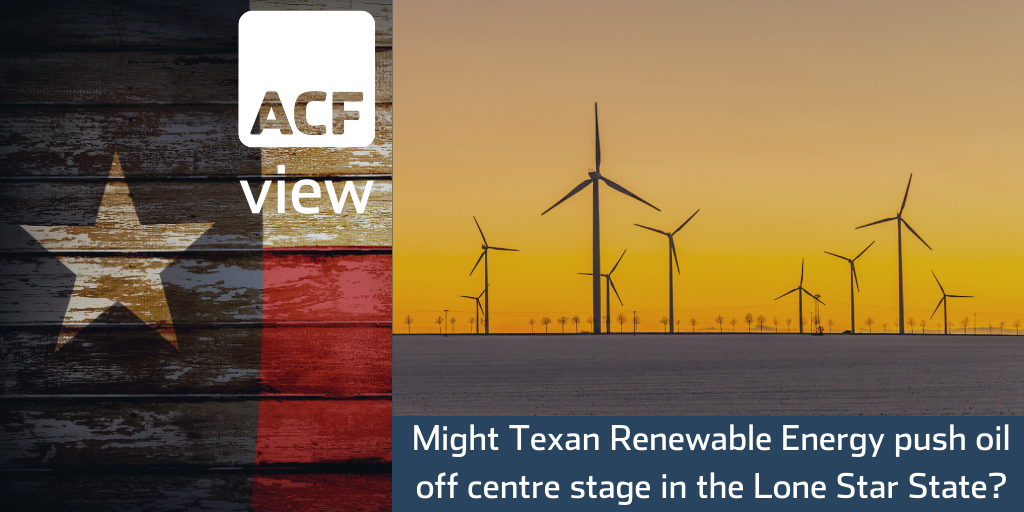How Texas will keep its heart of energy
If fracking does not recover from the oil price war and the slump in demand caused by Covid-19, renewable energy, wind and solar energy are potential investment beneficiaries.
The renewables sector is attractive due to high and growing global demand for energy combined with low and constantly declining levalised cost of energy (LCOE) for renewables, particularly solar. The capital cost of wind-turbines and solar panels has also fallen dramatically in the last decade.
The renewables sector creates jobs (something that is of particular interest to politicians during and post covid-19) and will help industries move away from carbon fuels. (Texas has around 35,000 jobs in solar and wind energy and, for a while, the fastest growing job category in America has been ‘wind-turbine technician’). In Texas, royalties are paid to landowners, which both incentivises land-owners, and deters opponents of wind farms.
Federal policy makers have implemented a production tax credit for wind energy, and they are about to apply a similar policy to solar. There are also talks about creating a tax credit for carbon sequestration.
The results of all these push effects is that companies like Vistra Energy, one of Texas’s biggest electricity firms, is not relying as much on coal power stations and has cut its consumption needs by more than half. Vistra’s CEO, Curt Morgan, announced that all Vistra’s recent investments were made into renewables and that the company is also backing a carbon tax.
In Texas, solar and wind energy already make up 55% of all new electricity capacity. The future of renewables looks bright in America because, in part, politicians now recognise that there is a political problem in not supporting those ‘new’ energies.
In our view, any breakdown in the US fracking industry, which could come about as a result of the current economic crisis and the lasting damaged created by the now largely unravelled Saudi-Russia inspired oil price war, will lead to professional investors focussing more heavily on renewable energy, and perhaps a little ironically, specifically solar and wind energy in…Texas.
















